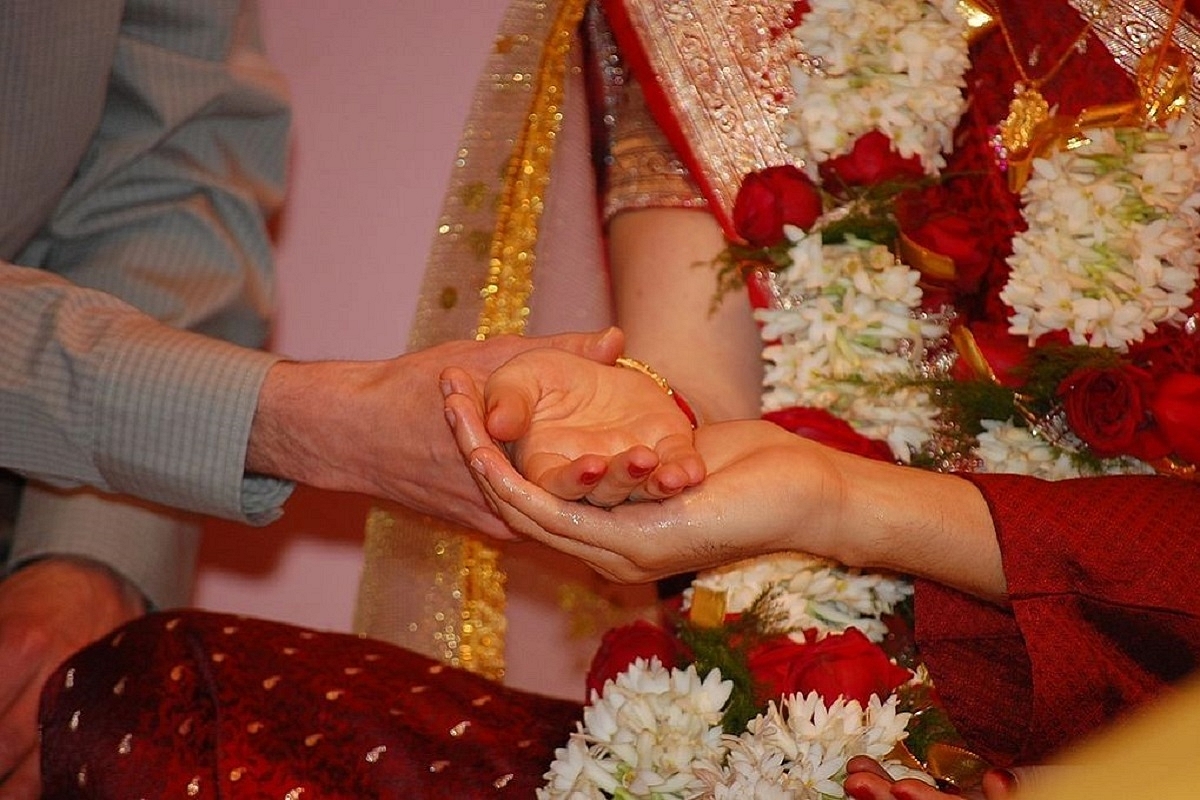Ideas
Raising Women's Marriage Age To 21 Is Fine, But Educate First And Legislate Later
- Changes that impact communities deeply should not follow the law-first-education-later tendency among our law-makers. We should educate and then legislate.

Raising women's marriage age is good, but...
The Union government has decided to introduce legislation to raise the legal age of marriage for women from 18 to 21, bringing it on a par with that for men. Since this involves changes to many other laws and not just the Prohibition of Child Marriage Act, 2006 — the Special Marriages Act and laws that govern marriages among Hindus, Christians and Parsis, to name just a few — the government should hasten slowly.
The proposed changes are based on the recommendations of a committee headed by Jaya Jaitly, which based its report on the notion of gender equality. The assumption is that keeping the marriage age lower for young women than for men implies a loss of time in taking up higher education and skill courses, let alone giving time to earn money in a job. It goes against the traditional assumption that women mature earlier than men when it comes to taking up family responsibilities, as evident in the general practice of leaving an age gap between men and women in “arranged” marriages.
Jaitly is quoted as saying in a Hindustan Times report: “If we talk about gender equity and gender empowerment in every field, we cannot leave marriage out because this is a very odd message that a girl can be fit to be married at 18, that cuts away her opportunity to go to college, and the man has the opportunity to prepare himself for life and earning up to 21 years.” Besides, a later age for marriage implies access to better nutrition and healthcare for women, and also decreased chances of infant mortality or child malnutrition.
One cannot argue with this logic, but the reason to hasten slowly with legislative changes is equally strong. By putting the legal cart before the horse of changing social mindsets, you increase the chances of making more young people defy the law.
There is also a more piquant issue: one wonders if rape laws are also going to be changed along with the age of marriage to 21. This implies that sex with any partner below that age is statutory rape. If the rape laws are now changed, we would have a more serious anomaly: most girls and boys reach puberty just before their teens, and one cannot rule out sexual interest and activity before the current legal age of consent — 18. With this age bar also rising to 21, we are in danger of putting millions of young men and women in contravention of the law. The scope for harassment of young couples and allegations of statutory rape even among consenting adults will increase by a huge margin.
The correct way of raising the marriage age is to increase awareness about the need for the change before actually making contravention of the law a punishable act. The way forward could be the following.
Two, use the next five years to inform and educate the people about the coming legal changes and why they will help raise gender equality and is beneficially to all, especially women.
Three, in the communities most vulnerable to early marriages, especially the poor among the Scheduled Castes and Scheduled Tribes and Muslims, information on why the new law will be good for them must be explained. Added security and protection for vulnerable girls is important, for one main reason why parents seek to marry their girls off at an early age is to prevent rape and dishonour.
Four, use this time to get as many young women as possible into higher education and skills training — and hopefully into jobs and apprenticeships.
Once these three or four things get done in larger numbers, young women, and possibly their parents too, will be unwilling to sacrifice careers and earning potential by resorting to early marriages.
Changes that impact communities deeply should not follow the law-first-education-later tendency among our law-makers. We should educate and then legislate.
Introducing ElectionsHQ + 50 Ground Reports Project
The 2024 elections might seem easy to guess, but there are some important questions that shouldn't be missed.
Do freebies still sway voters? Do people prioritise infrastructure when voting? How will Punjab vote?
The answers to these questions provide great insights into where we, as a country, are headed in the years to come.
Swarajya is starting a project with an aim to do 50 solid ground stories and a smart commentary service on WhatsApp, a one-of-a-kind. We'd love your support during this election season.
Click below to contribute.
Latest